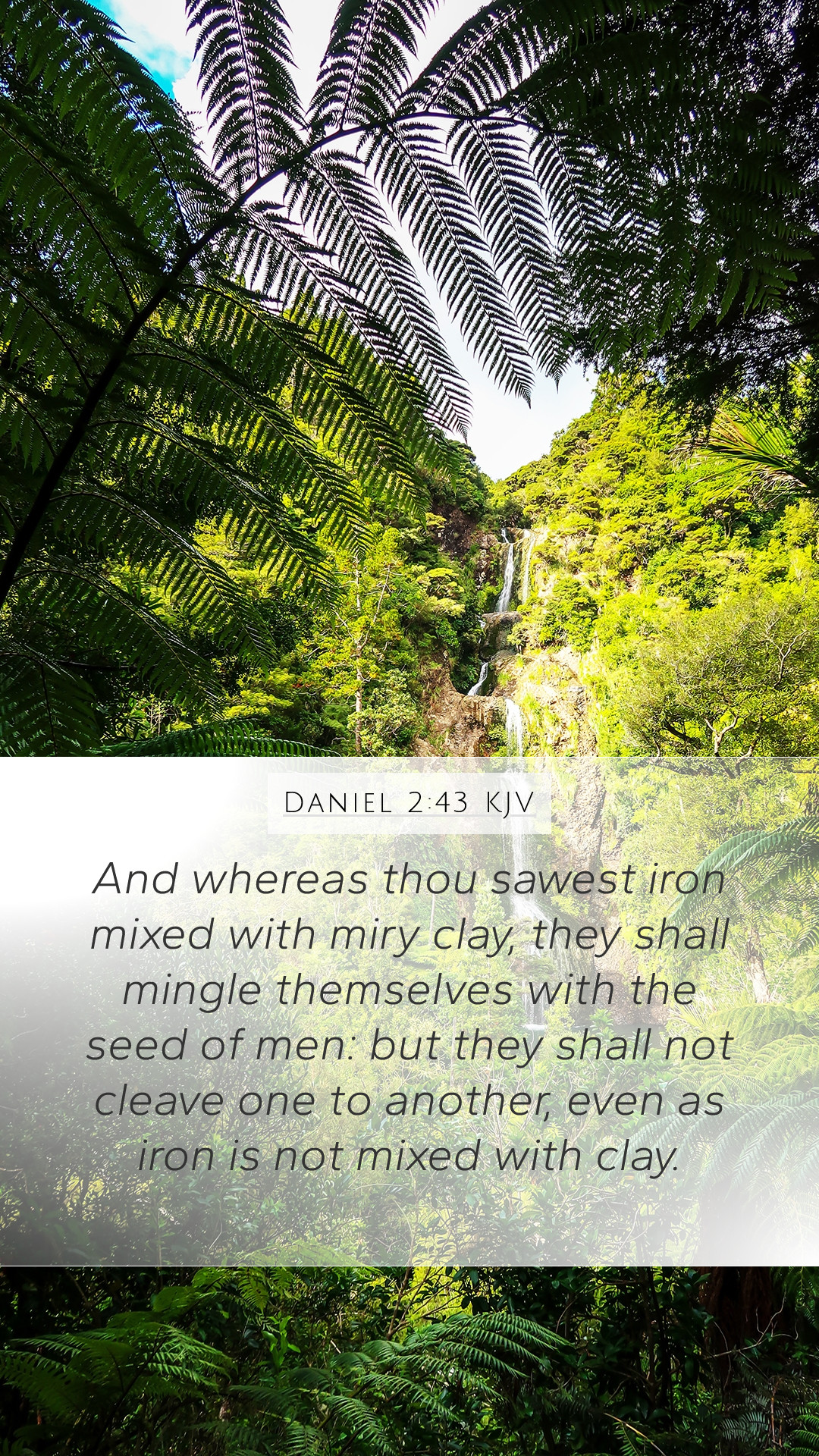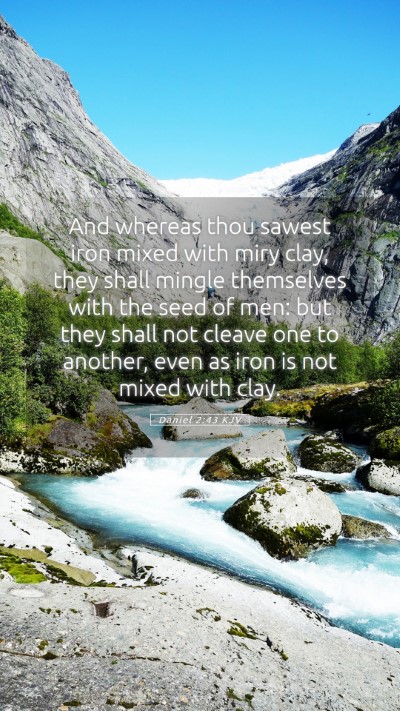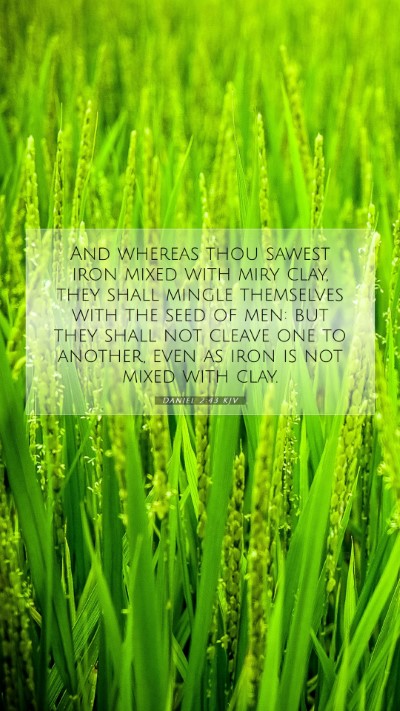Understanding Daniel 2:43
Verse Context: Daniel 2:43 states, "And whereas thou sawest iron mixed with miry clay, they shall mingle themselves with the seed of men: but they shall not cleave one to another, even as iron is not mixed with clay." This verse is part of a prophetic vision interpreted by Daniel regarding the future kingdoms that would arise after Babylon.
Bible Verse Meanings
This verse reflects a complex interaction between different powers as symbolized by the iron and clay. Here, iron represents strength and power, whereas clay symbolizes fragility and instability. The mixing of these two elements suggests an inability to unite fully, signifying a kingdom that encompasses strength but is fundamentally weak.
Bible Verse Interpretations
- Matthew Henry: Henry emphasizes the idea that the attempt at uniting different nations or people is met with failure. The iron and clay, although mixed, do not establish a lasting bond, symbolizing the future kingdoms that will struggle to maintain coherence.
- Albert Barnes: Barnes connects the mixed nature of iron and clay to the political conditions of the time. He argues that while one may appear to possess strength, the underlying weaknesses often prevail, resulting in instability among those attempting to unite.
- Adam Clarke: Clarke focuses on the prophetic aspect, illustrating how these entities symbolize future powers that will not endure. He views the mixture as an indication of political alliances that will ultimately be ineffectual, highlighting the prophetic nature of Daniel's vision.
In-Depth Bible Verse Analysis
The imagery within Daniel 2:43 serves to illustrate a prophetic revelation about the future of world kingdoms. The portrayal of iron represents the Roman Empire or significant powers characterized by their might, while the clay reflects the various nations or factions that will struggle to coexist. Even when united, they are inherently at odds, resulting in conflict and division.
Biblical Exegesis
In conducting a biblical exegesis of Daniel 2:43, we see how the verse speaks to the nature of human political endeavors. Scholars like Clarke point out that this reflects a broader theological theme about the sovereignty of God over human history. The imagery serves as a reminder that all human efforts are frail before divine orchestration.
Application of the Verse
For those engaging in Bible study, understanding the complexities of this verse allows for deeper reflections on the nature of human relationships and alliances. This passage teaches that despite appearances, true unity rooted in common purpose is challenging, urging readers to consider the importance of spiritual solidarity grounded in faith rather than mere political expediency.
Related Bible Verses
- Daniel 2:34-35 - Discusses the eventual destruction of earthly kingdoms by God's eternal kingdom.
- Revelation 17:12-14 - Talks about the kings who make alliances but ultimately oppose the Lamb.
- Romans 12:2 - Advises believers not to conform to the patterns of this world, aligning with the themes of instability and worldly trust.
Final Thoughts
In conclusion, Daniel 2:43 is rich with meaning and serves as a profound commentary on the human condition regarding power, alliance, and divine sovereignty. This verse, like many others, can be a source of insightful understanding during Bible study groups or personal reflection.


